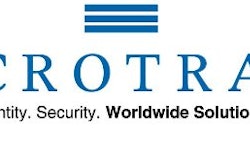The new report* shows how regenerative medicine is seen as an area with high future potential, as countries need ways to cope with the burden of an aging population.
The stem cell market alone is predicted to grow to around $5.1 billion by 2014, while gene therapy has also shown promise despite poor understanding of some areas of regenerative medicine and a lack of major approvals (the only approvals to date being made in Asia).
Up until now, securing research within clinics has been difficult, with a high number of failures and discontinuations throughout all phases of clinical study. Stem cell therapy uses bone marrow transplants as an established treatment method, but the development of the therapy into further applications and has not yet become common practice.
Similarly, tissue engineering has been successful in the areas of skin and bone grafts, but translation into more complex therapies has been an issue for researchers. Although scientific possibilities are ever-increasing, the true potential of regenerative medicine has yet to be demonstrated fully.
A desire to discover new and innovative technologies has encouraged governments in the UK and Singapore to focus directly on regenerative medicine as a future potential economy booster. They have provided funding and incentives for companies to conduct their research in the country, along with the creation of hubs of knowledge and permissive regulatory environments to encourage research. Funding for industry and research groups is a vital part of furthering regenerative medicine, especially in taking therapies through clinical trials and on to commercialization. As more regions find a desire to attract industry and expertise, more focus is likely to be given to regenerative medicine.
However, uncertainties over legislation and funding from government bodies, especially in regard to ethically controversial therapies such as human embryonic stem cell research, are still deterring investors. President Obama overturned a ruling on a ban on NIH (US National Institutes of Health) funding for human embryonic stem cell research, but a newly elected party may scrap this valuable route of funding.
Regulatory pathways for the new and emerging field of regenerative medicine can be problematic for companies looking to enter markets internationally, as requirements for clinical trial design, required endpoints and approval legislation are still developing and often differ between countries.
Organizations such as the International Society for Stem Cell Research (ISSCR) publish recommended guidelines on working with stem cells, but these are not binding. Governments must therefore come together to determine a standardized framework for innovative medical research, in order that positive results and long-term follow-up data can be produced to solidify the reputation and investment potential of the regenerative medicine market.
Companies in this press-release





















